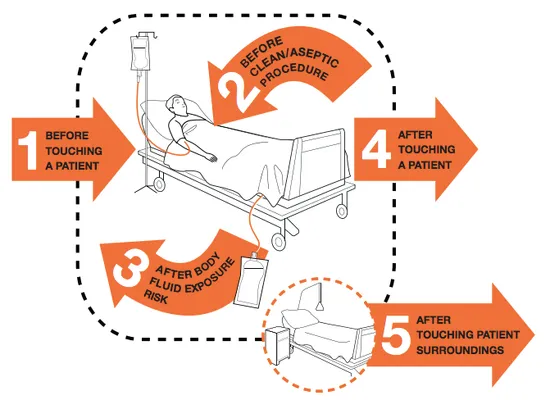Hygiene practices – Food poisoning cases serve as a sobering reminder of the critical need to prioritize and strengthen hygiene practices in our food handling and preparation systems. Examination of the cases reveals a broader narrative that extends beyond a single source of contamination.
“Addressing the root causes of these outbreaks requires a multifaceted approach that encompasses education, regulation, and community engagement,” food safety experts said.
“The presence of harmful bacteria in contaminated food indicates a lack of hygiene practices. The bacteria is the culprit of foodborne illnesses and is associated with poor sanitation and improper food handling. However, it is crucial to recognize that the problem goes beyond an isolated incident,” says Dr Mahboob Malik, medical director of a private hospital.
“Community awareness and engagement campaigns can play a critical role in transforming hygiene practices. By establishing partnerships with local organizations, health authorities can disseminate vital information on safe food handling, storage, and consumption practices. By actively engaging the community in initiatives and emphasizing shared responsibility for food security, we can foster a culture of vigilance and collective action,” adds Esa.
“There is a need for comprehensive hygiene training programs that cover all stakeholders in the food chain, from producers to consumers. By implementing rigorous educational initiatives, we can ensure that food handlers are equipped with the knowledge and skills necessary to maintain proper hygiene throughout the process,” said food safety experts and researchers.
“This could include training programs on handwashing techniques, safe food storage practices, and proper methods of cleaning and sanitizing utensils and food preparation areas,” they add. Hygiene practices
Hygiene practices
Strict standards and their implementation are key to upholding and maintaining food hygiene standards. Regular inspections and monitoring mechanisms can be crucial safeguards against gaps in cleaning and food safety codes of conduct. By promoting a culture of compliance, we can significantly reduce the risk of foodborne illness and protect public health,” says Esa Zaidi, a food safety expert.Hygiene practices

“It is essential to recognize that the responsibility for ensuring safe food practices lies not only with authorities but also with individuals. “Consumers should be educated about food safety measures such as proper cooking temperatures, risks associated with cross-contamination, and the importance of reading and understanding food labels,” adds Shabbir. Dr. Najaf Ali says: By making informed decisions and demanding higher standards, consumers can influence the food industry to prioritize safety and quality.Hygiene practices
Technological advances offer promising avenues to improve food security. Innovations such as smart sensors and traceability systems can improve transparency and accountability in the food supply chain.Hygiene practices
These tools allow rapid identification of potential contamination sources and facilitate targeted interventions to prevent outbreaks. Adopting these technologies can strengthen consumer confidence and raise food safety standards,” says Shabbir Hussain, a food safety researcher.
